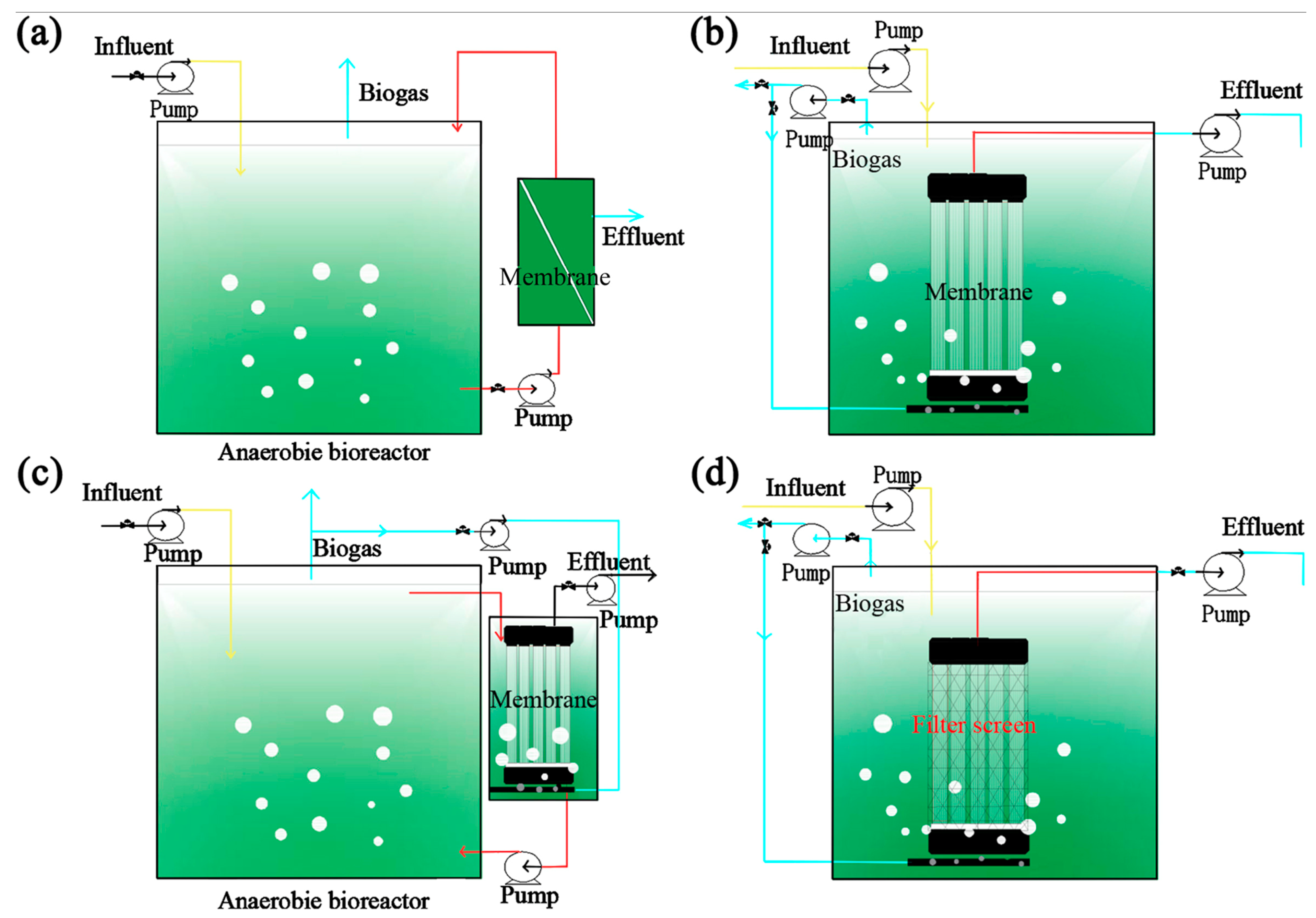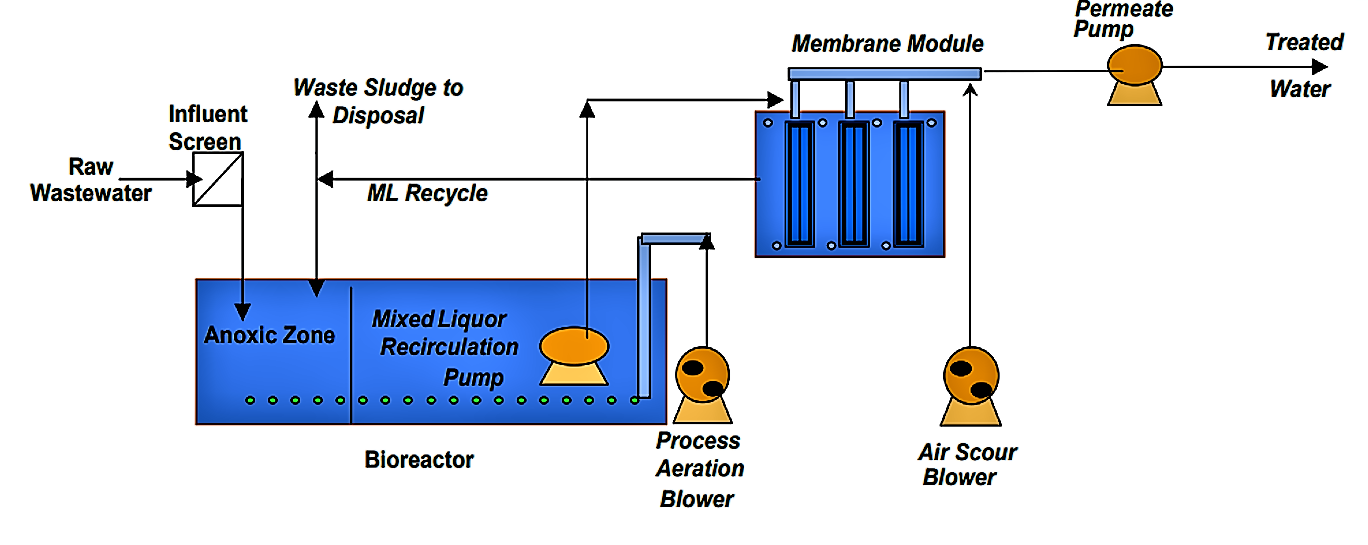How Membrane Bioreactor Technology Is Revolutionizing Wastewater Treatment
How Membrane Bioreactor Technology Is Revolutionizing Wastewater Treatment
Blog Article
The Advantages of Membrane Layer Bioreactors in Lasting Wastewater Monitoring
Membrane layer bioreactors (MBRs) stand for an essential development in sustainable wastewater management, successfully combining biological therapy with advanced membrane layer purification modern technology. This combination not just improves effluent top quality by effectively getting rid of pollutants however additionally opens up opportunities for water reuse in different applications, therefore resolving the pressing requirement for source conservation. The small layout of MBRs contributes to considerable reductions in environmental effect and operational prices. As the demand for sustainable options intensifies, checking out the complex advantages of MBRs might reveal unexpected effects for the future of wastewater therapy systems.
Introduction of Membrane Layer Bioreactors
Membrane layer bioreactors (MBRs) stand for a substantial innovation in wastewater therapy technology, incorporating biological degradation with membrane filtering to boost the performance of the therapy procedure. This ingenious system integrates the advantages of standard activated sludge processes with membrane innovation, permitting enhanced solid-liquid splitting up. MBRs use semi-permeable membranes to different treated water from biomass, causing high-quality effluent that can be recycled or safely released into the atmosphere.
The functional style of MBRs generally entails a bioreactor where microorganisms damage down raw material, adhered to by a membrane layer device that filters the combined liquor. This setup not only minimizes the impact of the therapy facility yet likewise permits greater biomass concentrations and reduced hydraulic retention times. In addition, MBRs can treating a wider variety of pollutants, consisting of microorganisms and nutrients, making them ideal for different applications, from metropolitan wastewater therapy to industrial effluent handling.
The combination of MBRs right into wastewater administration systems is a sign of an expanding fad in the direction of effective and lasting methods in environmental design. Their capacity to generate top notch effluent while decreasing room demands positions MBR innovation as a principal in modern wastewater therapy options.
Boosted Effluent Top Quality

The membrane layer filtration process functions as a physical obstacle, allowing the retention of bacteria and particulate issue, which adds to a more clear and cleaner effluent (Membrane Bioreactor). Moreover, MBRs operate at higher biomass focus than conventional triggered sludge systems, promoting extra efficient biodegradation of contaminants. This results in a reduction in biochemical oxygen need (BODY) and overall suspended solids (TSS) levels in the last effluent
Additionally, MBRs show exceptional efficiency in treating challenging wastewater compositions, such as commercial effluents and wastewater with high nutrient loads. As a result, the effluent generated is usually of better, allowing for even more flexible disposal choices and minimized ecological influence. Inevitably, the enhanced effluent top quality accomplished through MBR modern technology emphasizes its important role beforehand lasting wastewater management practices.
Water Reuse Opportunities
The top quality effluent created by membrane layer bioreactors (MBRs) opens up substantial opportunities for water reuse in various applications. MBRs successfully remove impurities, consisting of pathogens, put on hold solids, and organic matter, resulting in cured water that meets or goes beyond site here governing standards for reuse. This top quality permits the execution of water reusing initiatives throughout diverse markets.
One noticeable application remains in agriculture, where treated wastewater can be made use of for watering, promoting sustainable farming practices while saving fresh water resources. Furthermore, MBR-treated effluent can be made use of for commercial procedures such as air conditioning, cleaning, and as a process water source, considerably reducing the need for drinkable water in these operations.
In urban atmospheres, MBRs promote using reclaimed water for landscape irrigation, commode flushing, and various other non-potable usages, contributing to the total strength of water supply systems. Additionally, the combination of MBR technology in decentralized systems aids in taking care of local water needs, specifically in water-scarce regions.
Reduced Environmental Impact
Just how can the adoption of membrane layer bioreactors (MBRs) add to a reduced environmental impact in wastewater administration? MBRs substantially boost the therapy efficiency of wastewater while reducing view ecological disruptions. Membrane Bioreactor.
In addition, MBRs operate at lower hydraulic retention times compared to conventional systems, leading to smaller therapy plant footprints. This portable design reduces land use, thereby maintaining natural habitats and biodiversity. The process likewise produces much less sludge than conventional methods, alleviating disposal challenges and reducing greenhouse gas emissions related to sludge management.
Additionally, MBRs promote the healing of valuable resources, such as water and nutrients, adding to a circular economy. By allowing water reuse for irrigation or commercial processes, MBRs aid minimize freshwater scarcity, therefore promoting sustainable water utilize practices. Ultimately, the adoption of MBR modern technology stands for a significant stride in the direction of reducing the ecological effect of wastewater administration systems.
Financial Benefits of MBRs

Additionally, MBRs assist in the production of high-quality effluent, which can be reused for numerous applications, such as agricultural irrigation and industrial procedures - Membrane Bioreactor. This reuse ability can considerably lower water purchase prices, offering a monetary incentive for industries encountering stringent water laws
The compact design of MBR systems also leads to minimized land needs, which is particularly useful in urban areas where realty is expensive. By minimizing room, sectors and districts can reduce land procurement and upkeep expenditures.
Additionally, MBRs typically need less constant upkeep and have a longer life-span Homepage than typical systems, additionally adding to set you back savings. In summary, the economic advantages of MBRs-- ranging from decreased functional prices to land cost savings and effluent reuse-- make them an engaging choice for sustainable wastewater administration, providing both instant and long-term economic advantages.
Final Thought
Additionally, MBRs add to reduced ecological influences via small designs and reduced sludge generation. Economic benefits additionally improve their viability, making MBRs a promising service for addressing the difficulties of wastewater therapy and advertising lasting source monitoring.
Membrane bioreactors (MBRs) represent a pivotal innovation in sustainable wastewater monitoring, effectively combining organic therapy with innovative membrane filtration technology.Membrane bioreactors (MBRs) stand for a considerable improvement in wastewater therapy modern technology, integrating organic destruction with membrane filtration to enhance the performance of the treatment procedure.Attaining boosted effluent quality is one of the most substantial benefits of making use of membrane layer bioreactors (MBRs) in wastewater treatment.Furthermore, MBRs demonstrate exceptional efficiency in dealing with challenging wastewater structures, such as industrial effluents and wastewater with high nutrient lots.Incorporating membrane layer bioreactors (MBRs) into wastewater management not only reduces ecological effect however also provides substantial financial benefits.
Report this page